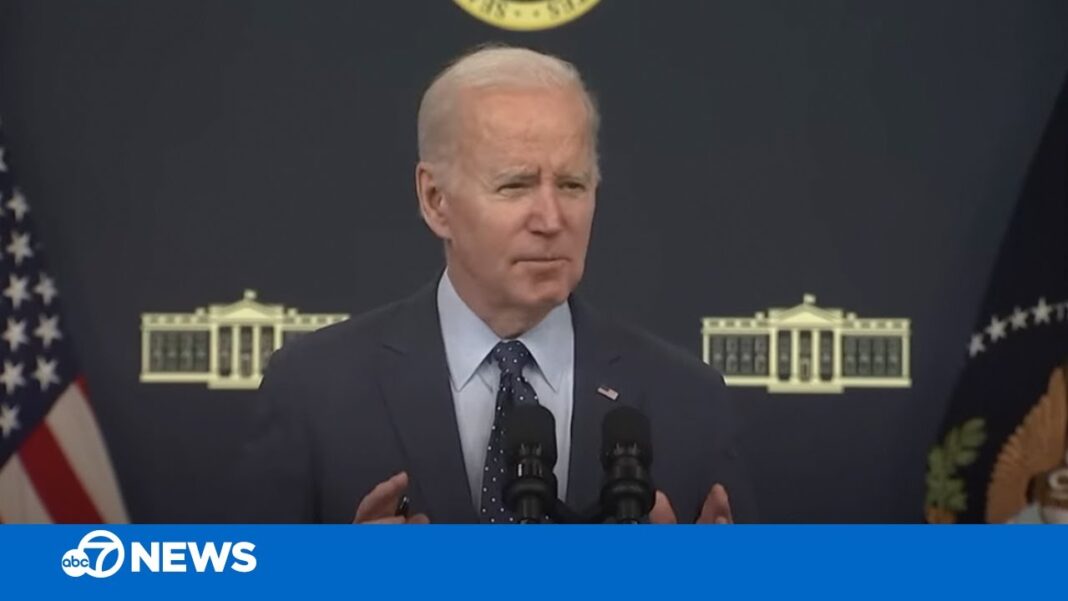It’s time for Congress and the president to recognize they have a spending addiction. It is time also for our government to recognize it is incapable of managing the nation’s finances. In Fiscal Year 2022, the United States collected $4.8 trillion in revenue and spent $6.32 trillion. Our federal government spent $1.47 trillion more in 2022 than taxpayers gave it to spend. The federal government is $31.4 trillion overspent. That is more money than the $25.46 trillion GDP of the nation. In human terms, the federal government is a fat, bloated organization that cannot manage the nation. It needs to go on a diet, a spending diet.
Congress needs to read “The Federal Spending Diet Book.”
The Federal Spending Diet Book
Reducing federal spending is about responsible governance, not Republican or Democrat power. There are relatively commonsense efforts to reduce the debt. Chapters 1 through 9 are the easy steps to reduce federal spending by a trillion dollars or more annually. Chapter 10 is for those serious dieters who want to “Make America Great Again.” It sets out a tax system that transforms a federal government from one of picking winners and losers to one that simply collects taxes to pay the necessary bills of the government.
If “[The] journey of a thousand miles begins with one step,” our federal government needs to start walking.
Chapter 1. Do not fund laws that have not been authorized. The easiest set of budget cuts would be to refrain from funding laws that Congress has not authorized. “In FY 2021 appropriations, the Congressional Budget Office identified 1,068 authorizations of appropriations, stemming from 274 laws, tolling $432 billion, that expired before the beginning of the fiscal year 2022.” Since House Rules prohibit such appropriations, it should be an easy savings of almost one-half trillion dollars.
Chapter 2. Review and vote on every expenditure of the Judgment Fund. The Judgment Fund is the mother of all slush funds. It is a permanent, indefinite, and unlimited congressional appropriation continuously available to pay money judgments entered against the United States and settlements of cases in or likely to be in litigation with the United States. It is an indefinite appropriation, so secret that Congress no longer even debates what the amounts are for. The amounts are appropriated, no matter what the amount. The Department of the Treasury just pays the claims upon the receipt of the paperwork. This is the fund that President Obama used to deliver $1.7 billion in cash to Iran as a bribe to sign the Iran nuclear deal. Why should our government officials have billions in a secret fund to cover up illegal activity? Having Congress approve each judgment and settlement as it did before 1956, the U.S. could save taxpayers tens of billions of dollars.
Chapter 3. Follow and implement GAO’s Generally Accepted Accounting Principles (“GAAP”). Congress mandates GAO to perform a GAAP analysis of federal spending and assets and provide recommendations to ensure the financial reporting by an agency is transparent and consistent. Every member of Congress should read these reports on how our money is managed and should implement its findings. One specific GAO recommendation is for the federal government to address the government-wide improper payments, estimated to be $175 billion.
Chapter 4. Government must operate only for a public purpose. The issue of Congress giving away our money to private entities has been debated since the founding of the Republic. Opponents of giveaways argue taxpayer money can only be spent on matters enumerated in the Constitution. The government asserts it can spend taxpayer money on anything that promotes the general welfare. Continuing this debate is irrelevant since the courts have made it clear legislatures determine what the general welfare is. To address the excesses of gifts to private individuals, Congress should stop giving money to private parties, including tax credits for fancy automobiles, horse racing, NASCAR, and short-line railroads, and finally eliminate carried interest.
Chapter 5. Members of Congress and the President should imagine their conference tables are merely kitchen tables that invite a family discussion over finances. The amount of information available to Congress for making smart debt reduction decisions is overwhelming. It is time Congress puts these materials to use. A simple way to approach this task would be for each congressional committee to rank each program within its jurisdiction in order of priority. The budget and appropriation committees would work with the authorizing committees to ensure the highest-priority programs receive priority funding. The appropriation committees would work down the list until the revenue raised by taxes is expended. At that point, Congress would have to cease spending money on programs for which there is no longer any revenue, e.g., studies of shrimp on a treadmill, or admit to the taxpayers it wants to borrow money to fund programs of lesser value. This kitchen-table process of spending only up to revenues received could save hundreds of billions of wasted dollars.
Chapter 6. Re-constitute the Joint Committee on Reduction of Non-Essential Federal Expenditures, which existed from 1941 to 1974. This committee was established after World War II to recommend ways to reduce a massive federal budget. Its goal was to identify non-essential spending. While the committee was only a study committee, requiring its recommendations to be submitted to authorizing and appropriation committees, it had a major impact on budgeting in government. With the inability of Congress to control spending or the states to force a Balanced Budget amendment to the Constitution, an alternative would be to create a similar committee to make recommendations to Congress but require its recommendations be voted on by Congress. This process creates accountability.
Chapter 7. Enact a Base Realignment and Closure Commission (“BRAC”) that applies to general appropriations. Due to political pressure to locate the military bases in numerous congressional districts, the U.S. constructed an excess of bases but could not close unneeded ones. To address the situation, Congress established BRAC, giving the Commission power to identify unnecessary bases and to send recommendations to Congress. The key to BRAC’s recommendations to Congress is that they became law unless Congress passed a Resolution of Disapproval and the President signed it. Using the BRAC structure, Congress could apply the same concept to all recommended reductions as a means of reducing political support for unneeded programs.
Chapter 8. Establish a Budget & Waste Reduction Director in every agency to identify unnecessary expenditures. Federal agencies have recycling and permit streamlining directors to help implement certain laws. Due to massive budget deficits, there should be a similar position to identify ways an agency can eliminate unneeded programs. The person should report directly to the head of the agency. All reports must be addressed by the head of the agency, and reasons for “No Action” must be publicly justified. Each director would recommend a 10% reduction in agency expenditures. Give the director a big bonus for meeting the target.
Chapter 9. The federal government needs to seriously re-think the massive subsidies it gives to private parties to buy green products. In the recently enacted “Inflation Reduction Act,” Congress authorized $370 billion in new tax credits for corporations and individuals if they purchase green energy products or build green energy facilities. The tax credits are to boost sales of electric vehicles, the installation of rooftop solar panels, the development of solar power systems, heat pumps, water heaters, space heating, electric stoves, circuit breaker boxes, additional home insulation, and exterior windows, to name a few private beneficiaries. This is in addition to federal regulations imposing energy efficiency requirements on at least sixty products and $577 billion in tax credits and grants for green energy projects since 2004.
The IRA was passed only a week after Congress authorized $280 billion to incentivize the semiconductor industry to build plants in the U.S. The semiconductor industry is a very profitable $573 billion industry that is expected to grow to $1.4 trillion by 2029 due to high demand for its products.
Chapter 10. Enact a fair, simple tax code that raises money to operate the government rather than legislating personal behavior. For those in Congress and presidents serious about the future of the United States, its time for Congress to stop using the tax code to pick winners and losers and to let the market allocate the goods and services wanted by consumers.
This simple solution is to repeal the 8-million-word tax code and replace it with the 1913- four-page Form 1040. Few deductions and low rates, but requiring everyone to pay some tax, including the wealthiest. Another benefit of this simple approach is it captures a greater amount of tax owed by closing the Tax Gap. The IRS defines the tax gap as the difference between true taxes owed for a given tax year and the amount that is paid. The gap is caused by the under-reporting of income, non-filing, and tax evasion. While the exact amount is unknown, the IRS estimates it to range from $574 to $700 billion annually. A complex tax code invites under-reporting and manipulation, whereas a simple tax code fosters greater participation and prevents large-scale manipulation encouraged by complexity.
Starting a diet requires acknowledgment of being overweight and the desire to lose weight. The same is true with overspending. It cannot continue for the health of the nation. If overspending continues, the long-term consequences will be extremely harmful to the nation, especially future generations. While not every step in the diet book needs to be followed, if, however, the federal government implements four or five of the steps, it is guaranteed to reduce spending by a trillion dollars.






